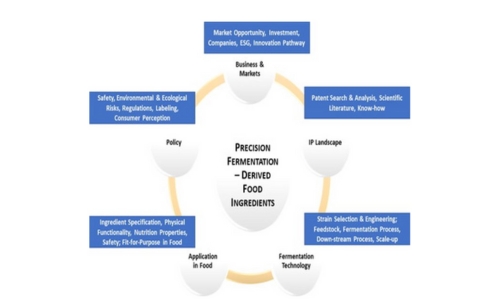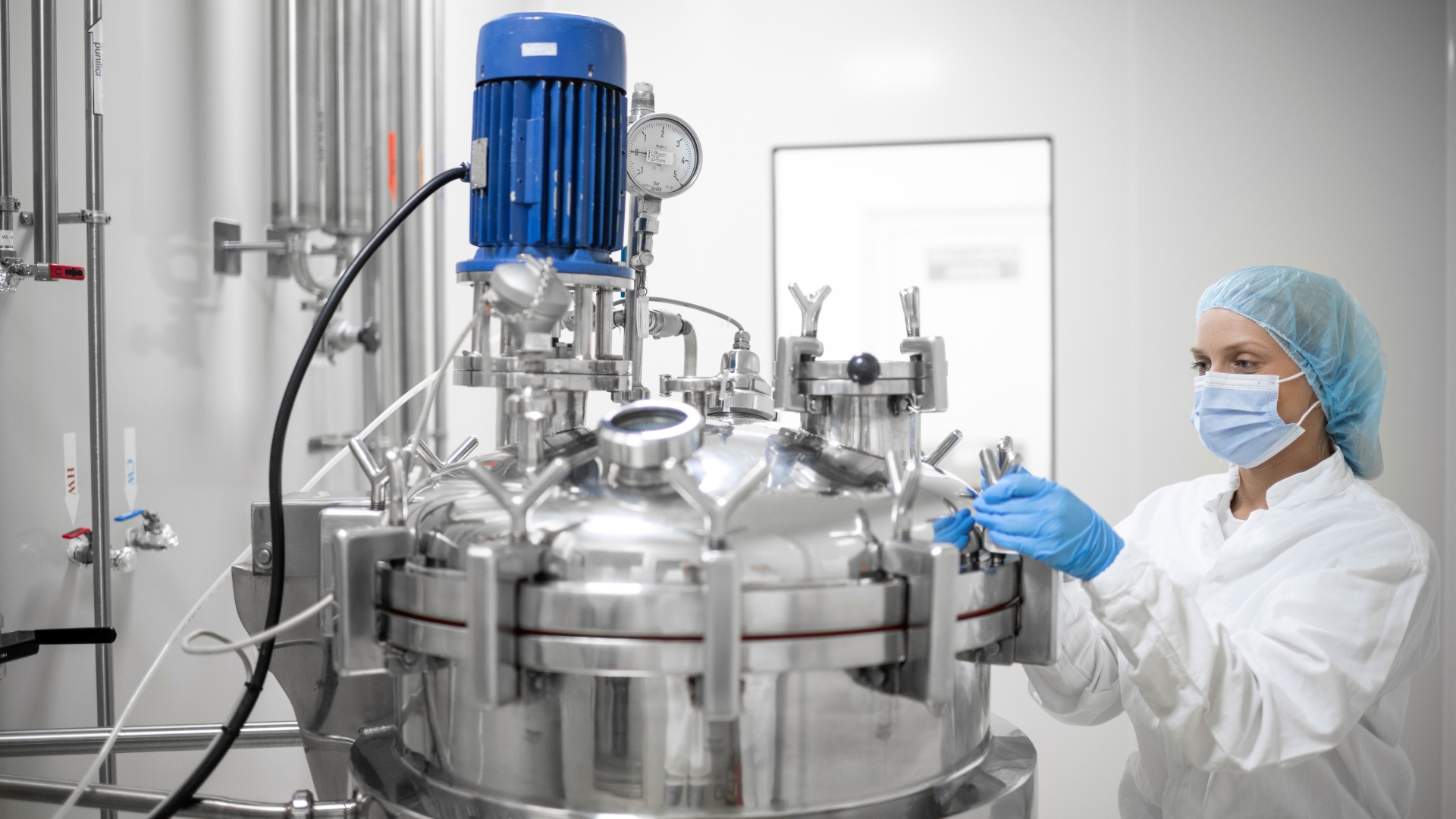Introduction
- Precision fermentation employs genetically modified microorganisms to generate high-value components such as proteins, enzymes, and other bioactive substances. Microorganisms are used in precision fermentation to produce specific functional components.
- The microorganisms have been engineered to function as mini-factories. This is how insulin for diabetes patients and rennet for cheese are made. Precision fermentation allows alternative protein manufacturers to generate specific proteins, enzymes, taste compounds, vitamins, colors, and lipids more efficiently.
- Precision fermentation for the development of essential food components (proteins, lipids, and carbohydrates) has recently emerged as a promising option for food system change. This movement is being driven by worldwide demands for more sustainable food production.
- The technology for developing new and novel fermented foods and food additives is emerging and fast evolving. To ensure the safety of these foods when consumed, the marketing of new and novel food products that have no history of safe use must be regulated in a transparent manner [1].

Figure 1- Considerations for bringing precision fermentation-derived ingredients to market.
Advantages
- Precision fermentation is a sustainable and cost-effective approach to create a wide range of products with diverse applications, from plant-based meat alternatives to drugs and vaccines
- Land use, water consumption, and greenhouse gas emissions are reduced with advanced fermentation technologies compared to conventional agricultural methods.
- Precision fermentation allows production of animal-free proteins without the need to raise and slaughter animals. This aligns with ethical concerns and a growing demand for cruelty-free food.
- As the precision fermentation production plant is sterile, shelf-lives may be extended, and products are naturally lactose-free and hormone-free.
- Manufacturers may also identify opportunities to improve their processes in terms of sustainability and consistency of product quality. Production can take place close to consumption since precision fermentation can be done practically anywhere [2].
Disadvantages
- Precision fermentation relies on more intensive control and manufacturing processes and investment in more specialized technology.
- However, the commercialization of genetically modified organism (GMO) technology for foods has been a challenge due to public perceptions and knowledge of their safety, risks, labeling, and regulation
- The technology has been in existence for a long time, but the knowledge base or expertise has been lacking.
- From a technical perspective, scale-up challenges include process development and optimization by judiciously selecting appropriate growth media, substrates, feedstocks, incubation temperature, and pH, and also considering the complexity of the fermentation process and downstream processing to obtain purified products
- Although precision fermentation allows for the specific molecule of interest to be produced efficiently, purification strategies can sometimes be still very complex.
- Biochemical engineering plays a crucial role in this transformation, and the scale-up process usually involves process validation and the use of new or modified equipment

Precision fermentation as one of the emerging trends
- Traditional, biomass fermentation, and precision fermentation may all be employed for producing food products and ingredients.
- Developments involving synthetic biology will be the next industrial revolution, attracting investment from private investments, mergers and acquisitions, minority stakes, and initial public offerings
- In terms of fermentation-derived ingredients for human and animal nutrition, the strategic imperatives for success in the fermentation ingredient market over the period 2017–2022 were driven by the market, changing food habits, and the increasing demand for high-quality food products
- The prospects for the growing markets for more sustainable and animal-free alternative food ingredients are driving interest in using precision fermentation technology.
- Genetically modified organisms have been used for improved yields and efficiencies of ingredients for the alternative meat and dairy sectors
- Most precision fermentation activities of startups in recent years have been directed at the development of alternative proteins, although there are emerging companies with interests in recombinant lipids and oligosaccharides [3].





